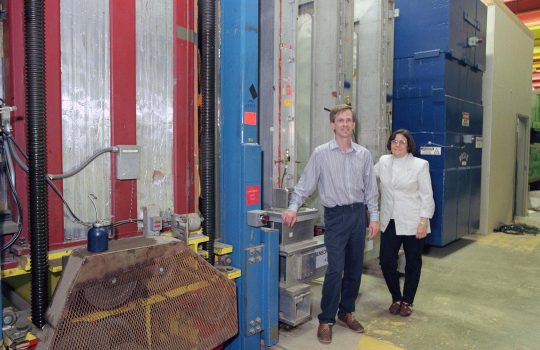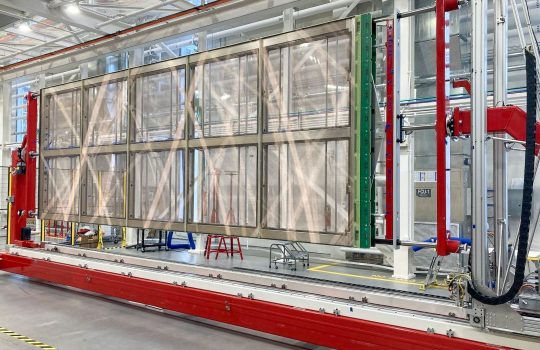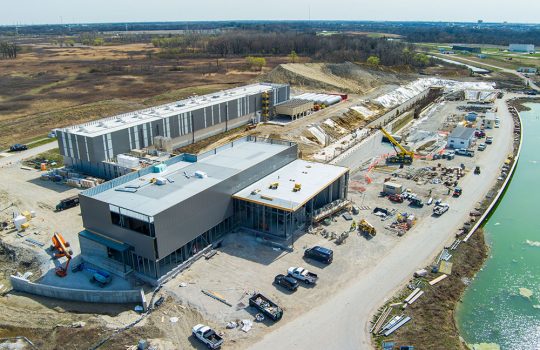It’s an exciting time for the Deep Underground Neutrino Experiment. With the worldwide scientific collaboration nearing 1,000 scientists from 30 countries, prototype detectors being built and tested at CERN, and construction scheduled to begin this year at the Sanford Underground Research Facility, the future looks bright for this most ambitious of long-distance neutrino experiments.
In a vote earlier this month, the DUNE collaboration elected a new co-spokesperson to see them through the next two years. And from a pool of highly qualified candidates they chose someone who has been with the experiment since its very beginnings: Edward Blucher, professor of physics and former chair of the Physics Department at the University of Chicago. Blucher also serves as the head of the Fermilab Physics Advisory Committee, a job he will step down from when he assumes his new role with DUNE.
In the late 2000s, Blucher chaired the executive board that led to the Long-Baseline Neutrino Experiment, one of the precursors of DUNE. He’s dedicated most of his career to one of DUNE’s science goals — shedding light on the matter-antimatter asymmetry of the universe — and is excited by the scale of this experiment and its potential for a breakthrough.
“Years ago we could not have imagined the alignment we have now between the collaboration, the laboratories and the funding agency,” he said. “It’s been in discussions for a long, long time, and we were hopeful, but it wasn’t real. Now I think we’ve crossed that bridge. It’s a real thing now, and it’s incredibly exciting, but also extremely challenging for the collaboration.”
The challenges, he said, are not just technical. With the prototype detectors under way and the short-baseline neutrino program at Fermilab providing important research and development for liquid-argon neutrino detector technology, an important part of the next few years will be for the collaboration to draw effectively on all of the talent available worldwide, Blucher said.
“How do we engage the enormous pool of talent in the collaboration to build the best possible experiment?” he said. “For DUNE to be successful, it is essential that we find ways to involve and engage all of our collaborators.”
Blucher will take over the position from André Rubbia of ETH Zurich and will join Mark Thomson of the University of Cambridge as co-spokesperson.
“I have known Ed for a number of years, and I am looking forward to working closely with him,” Thomson said. “The next two years are incredibly important for DUNE, and I’m pleased to have someone of Ed’s caliber in this role.”




